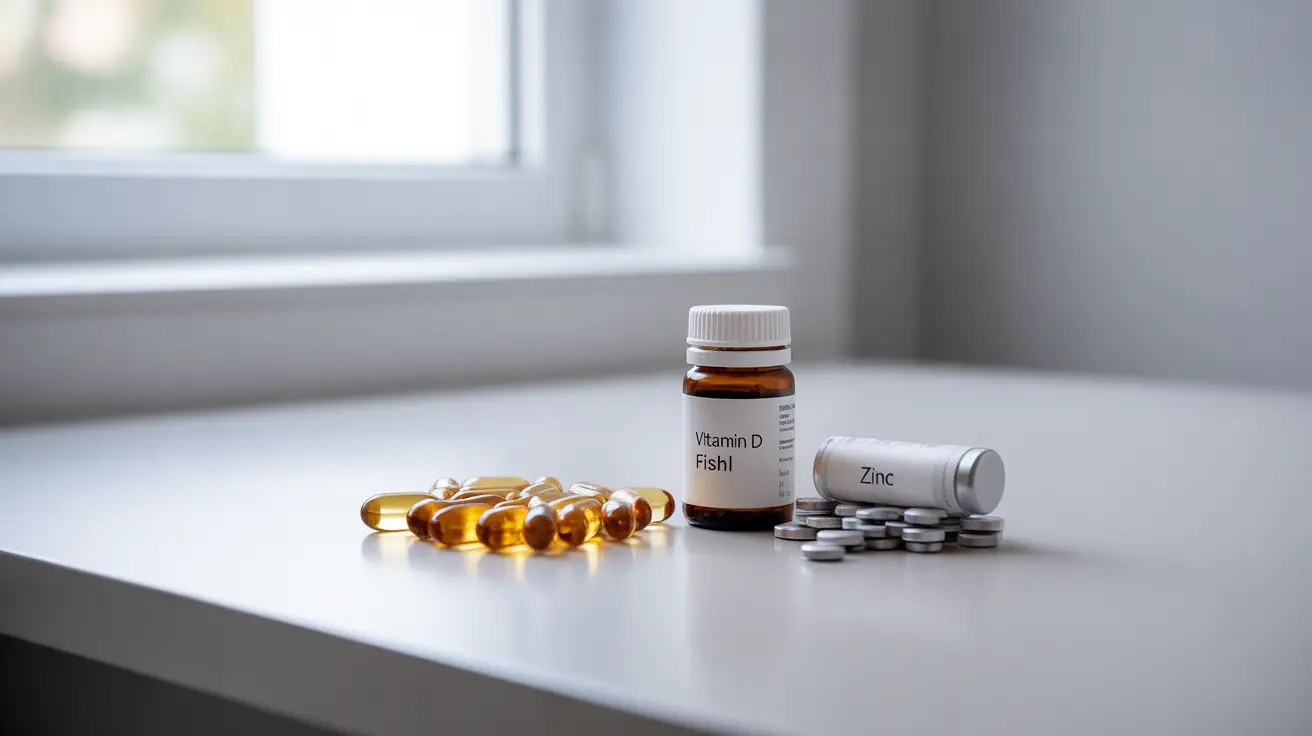Living with psoriasis can be challenging, but incorporating the right supplements into your treatment plan may help manage symptoms and support overall skin health. While supplements shouldn't replace prescribed medications, they can serve as valuable additions to a comprehensive psoriasis management strategy.
Understanding which supplements are most beneficial for psoriasis and how to use them effectively is crucial for achieving the best results. Let's explore the most promising supplements for psoriasis and how they may help improve your symptoms.
Key Vitamins and Minerals for Psoriasis Management
Several essential nutrients play important roles in managing psoriasis symptoms and supporting skin health. Here are the most significant ones:
Vitamin D: The Sunshine Vitamin
Vitamin D is particularly crucial for psoriasis management, as it helps regulate skin cell growth and immune system function. You can obtain vitamin D through:
- Controlled sun exposure
- Oral supplements (D3 form)
- Prescription topical treatments
- Vitamin D-fortified foods
Research suggests that many people with psoriasis have lower vitamin D levels, and supplementation may help improve symptoms when combined with traditional treatments.
Omega-3 Fatty Acids
Fish oil supplements rich in omega-3 fatty acids can help reduce inflammation associated with psoriasis. Regular supplementation may lead to:
- Decreased skin redness and scaling
- Reduced inflammation throughout the body
- Improved overall skin health
- Better response to other treatments
Essential Minerals for Skin Health
Zinc
Zinc plays a vital role in skin healing and immune system function. This mineral can help:
- Reduce inflammation
- Support skin cell regeneration
- Strengthen immune system response
- Promote wound healing
Selenium
Selenium is an antioxidant mineral that may help protect skin cells and reduce inflammation. Consider selenium supplementation if blood tests indicate a deficiency.
B-Complex Vitamins
B-complex vitamins, especially B12, are essential for skin health and may help manage psoriasis symptoms. These vitamins support:
- Skin cell metabolism
- Stress management
- Energy production
- Overall immune function
Implementing a Supplement Strategy
Before starting any supplement regimen, consider these important factors:
- Consult with your healthcare provider
- Start with one supplement at a time
- Monitor your symptoms and any side effects
- Maintain consistent dosing
- Choose high-quality supplements from reputable manufacturers
Lifestyle and Dietary Considerations
Supplements work best when combined with other healthy lifestyle practices:
- Maintain a balanced, anti-inflammatory diet
- Stay hydrated
- Manage stress levels
- Exercise regularly
- Avoid known trigger foods
Frequently Asked Questions
What supplements are most effective for managing psoriasis symptoms?
The most effective supplements for psoriasis typically include vitamin D, omega-3 fatty acids, zinc, and B-complex vitamins. These supplements work best when used as part of a comprehensive treatment plan and under medical supervision.
How does vitamin D help with psoriasis and what forms are available?
Vitamin D helps regulate skin cell growth and immune function. It's available as oral supplements (D3), prescription topical treatments, and through controlled sun exposure. Both oral and topical forms can be effective, depending on individual needs.
Can nutritional deficiencies like low vitamin B12 or zinc worsen psoriasis?
Yes, deficiencies in vitamin B12, zinc, and other nutrients can potentially worsen psoriasis symptoms. These nutrients play crucial roles in skin health and immune function, making adequate levels important for managing the condition.
Are topical vitamin D treatments better than oral supplements for psoriasis?
Both forms can be effective, but they work differently. Topical vitamin D treatments directly target affected skin areas, while oral supplements address overall vitamin D levels. Some people benefit from using both forms under medical supervision.
What lifestyle changes and dietary tips support psoriasis management alongside supplements?
Key lifestyle changes include maintaining an anti-inflammatory diet, staying hydrated, managing stress, exercising regularly, and avoiding trigger foods. These changes can enhance the effectiveness of supplements and other treatments.




